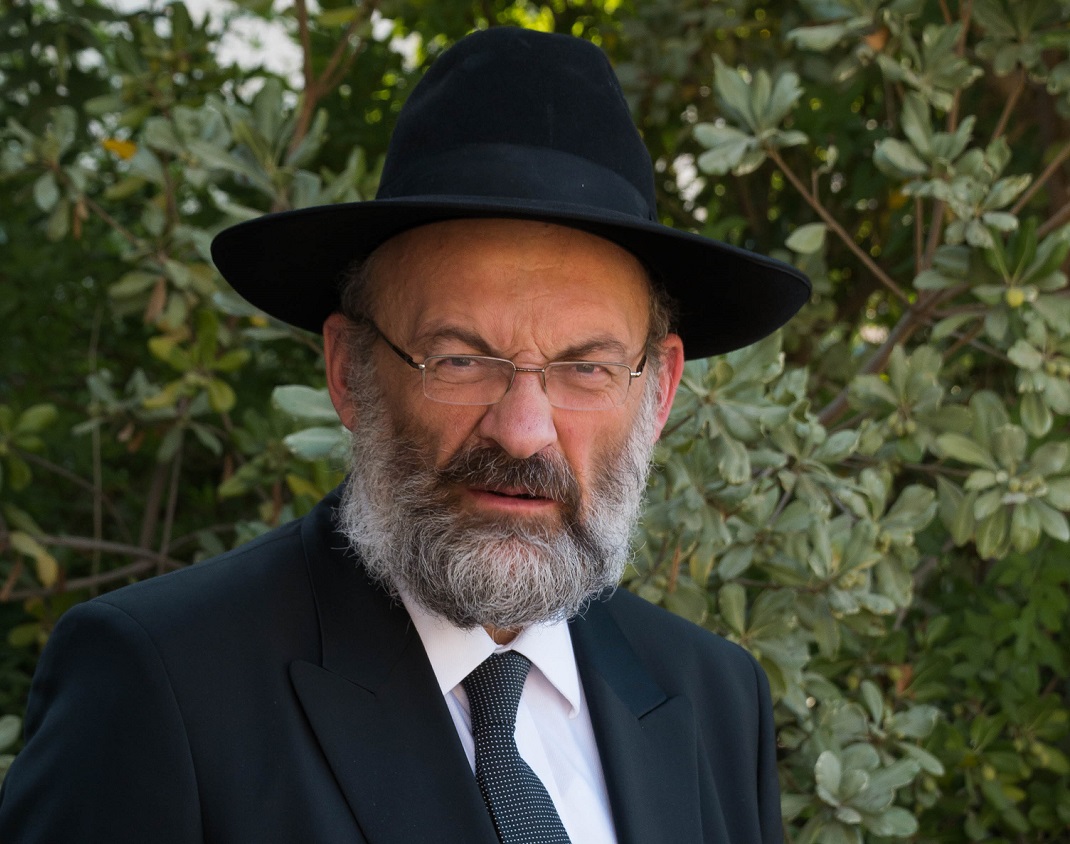Do You Know Your Family?

If you want to really understand somebody, your aim has to be to simply think about him, not to reach the truth
Prepared for print by Rabbi Eran Freuchter
O
ne of our biggest problems in family life today is that we don’t really know our own children, or even our spouse. We’re sure we know them inside out. But I can’t count the number of people I’ve met who don’t understand their own kids. Some of those kids are off the derech, some are still frum, but their parents’ contribution to their personal and religious development is superficial and frail. And much of the marital strife that’s so rampant today is rooted in mutual misunderstanding.
A person has no barcode to scan. No external sign can tell us who he is. Research shows that even someone’s facial expressions aren’t reliable indications of what’s happening beneath the surface. So how can we really understand another person?
Every human being is a mystery, and we have to approach each of them as such. If you’ve ever read a detective story, you know that at first, all the facts point in the same direction. You quickly come up with a convincing explanation of the crime. But that initial hypothesis is never correct. So how do you know if a clue is the key to the puzzle, or just a red herring? The answer is: You keep thinking. Drawing conclusions prematurely is the surest way to miss the mark.
Every great discovery is born of surprise. The truth is always deeper than it first appears. The only way to reach the truth is to keep thinking, even when you’re sure you have it all figured out.
If we want to understand others, we have to keep thinking about them, even if we think we believe we already know them. But there’s more to it. Thinking about them isn’t just the means to reach our goal — it has to be the goal itself. We aspire to understand others, but if we make that our mission, we’re setting ourselves up to misunderstand them.
It’s counterintuitive, even ironic. Your aspiration to find the truth makes you blind to it. Your determination to steer clear of falsehood leads you astray.
If we set out to understand another person, we close our minds to every possibility that seems implausible. Gradually, we zero in on what we think is the pure truth about the person. The problem is, once we’ve come up with a picture of the other person, we miss or dismiss anything that’s inconsistent with it. Sometimes, the person says or does something surprising that should make us rethink our image of him or her. But once we think we’ve found the truth, we close our eyes to anything that might challenge it.
If you want to really understand somebody, your aim has to be to simply think about him, not to reach the truth. You have to enjoy thinking about the other person. That’s the only way to be open to surprises. Don’t set out to understand him; just think about him!
Rav Meir Chodosh was a genius in understanding people. He explained that the secret of his success was that he didn’t try to understand them. “When I meet someone, I don’t want to decide who he is. I don’t even think about that. After multiple meetings, when I think about what I’ve observed, the picture becomes much clearer. I’m able to understand him much better than if I set out to figure him out.”
So why don’t we all do this? Because surprise is the last thing we want. We don’t want others to surprise us; we want to know them. We cling to the comfort of predictability.
We want to know others so well that nothing they do or say will surprise us. Imagine an acquaintance does something unexpected. You tell her friend, “I can’t believe she did that.”
The friend chuckles and says, “I saw that one coming — I know her inside out.”
How would you feel? Embarrassed. You’d say to yourself: “I’m so naive, so dense; that’s why I was surprised. Her friend is really astute; she had her all figured out.”
Nothing could be further from the truth. Someone who is never surprised by others is a specialist in degrading people! One who believes in gadlus ha’adam, the intrinsic greatness of humanity, understands that other people are always deeper than you think. The only way to be open to that depth is to keep thinking about others, and give them the right to surprise us.
The biggest shalom bayis issue in couples who’ve been married a long time is that they don’t let their spouse surprise them. They never discover the gaps and flaws in their image of their spouse. And they feel that while they’re constantly growing, their spouse only grows increasingly dull.
Especially when it comes to people we know intimately, surprises are often subtle and easy to overlook. Clues in a mystery are usually minute, and most people don’t see their significance. We have to train ourselves to appreciate even the most minor surprise. “I didn’t think that would bother him. I didn’t think she’d be so interested in that. I wouldn’t think he’d use that word.” Recognize that every surprise is a clue that might reveal an aspect of the other person you didn’t know or value before.
Once you’ve found a clue, follow the trail. I don’t mean shutting yourself up in a room and pondering what you saw; that won’t get you anywhere. But in your interactions with the other person, try to explore the different possibilities the clue might point to. Ask questions; you never know what you might uncover.
I met a wealthy couple who lived in a highly affluent community. On the surface, they looked like stereotypical millionaires who only cared about money and social status. But one thing surprised me: They had three children. Most members of their community have one, two kids at the most. I followed that lead, and asked them questions to investigate their attitude toward money. It turned out that they detested the superficiality and materialism that characterized their society. A minor surprise led to a tremendous discovery, simply because I noticed the clue and followed it.
It’s not enough to be surprised. Other people were also surprised that they had three kids, but no one gave it enough thought to follow the lead. If we want to discover the depth of our children and spouse, we must never stop exploring. The greatest discovery might lie just around the corner.
We have to give our kids, our husband or wife, the right to surprise us. If we do that, we’ll see they’re greater and deeper than we thought. More intriguing, more refined. If we don’t, they’ll always remain lackluster.
We have to restore the gadlus of our own children and spouse, and discover who they really are. Make thinking about them, not knowing them, your business. Keep your eyes open for clues, and view every surprising act or word as a promising lead. It’s challenging work, but very fruitful. This is the way to truly understand our children and spouse. This is the foundation of successful chinuch, and the key to long-lasting harmony in the home.
(Originally featured in Mishpacha, Issue 940.
Oops! We could not locate your form.







